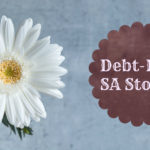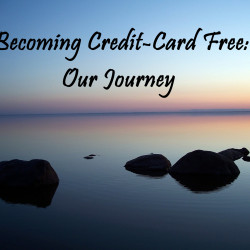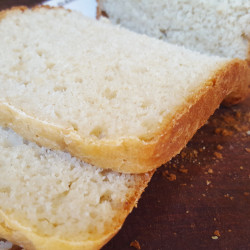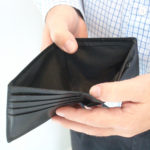Today’s Debt Free SA Story, and the very in this feature, is from Mylky who blogs over at Glassofmylk.
Mylky is a South African doctor who has paid off her entire medical student loan, and more, in less than a year after graduating! Mylky is now completely debt-free! Here is her inspirational story.
- Tell us a little bit about yourself.
I always say I’m a creative stuck in an academic’s body. I love to read and write, I spent a significant chunk of my high school/university free time making music, writing fiction and non-fiction, pursuing photography, just generally being a real art-geek. I come from a non-nuclear family and grew up in almost every economic condition you can imagine – I’ve lived in suburbs and townships – and when I was really young I decided I wanted to do work that made a tangible difference to people’s lives, regardless of their income. So I went the medical route instead of the art route, and now I’m a first year medical intern (that means I’m a qualified doctor doing my first year of real doctor work). But I’ve kept art quite central to everything I do. It’s what keeps me sane after seeing the things I’ve had to see in my line of work.
- How did you get into debt? How much debt did you have?
Most of my debt was educational, some of it was personal. For the first three or so years of medical school I survived on bursaries to cover my tuition, familial help to cover my living expenses (like res) and part-time jobs to cover the cost of equipment (like stethoscopes, ENT kits, etc.) and textbooks. Then my family situation became really dire financially, and all of a sudden I had to find a way to make it through the toughest (and most expensive) half of my medical education without that help.
Also, fee increments meant that my bursaries were barely covering tuition anymore. My choices were to drop out for a few years and work full time to earn the money (I almost did), apply for NSFAS (I tried, but didn’t qualify), lie a little on application forms for needs-based-bursaries (I never even considered it) or simply suck it up and start digging the debt hole with the aim to graduate on time and pay it back ASAP. I hated it, but with tuition at about R50000 a year, res at nearly R40000 a year (self-catering, with campus being the safest place to live especially since I didn’t have a car and would frequently be walking home from hospital at peak mischief hours) and equipment sometimes going for up to R2000 a piece (a stethoscope, for example), I knew I’d have to just take on the debt. I did this for three years, so you can guestimate how much I owed (I hate thinking about it, even now!).
I wasn’t completely innocent though: some of my debt (about R3000 worth) was purely the result of a poor decision I made. I once went to Johannesburg with some friends to record some music, and loaned money from my best friend for plane tickets and my cut of the recording expenses. It was a great experience, but I doubt I’d do it again knowing what I know now, especially about how I felt every time I saw that friend (who is a young high school teacher) and remembered I owed her money!
- What was the turning point for you that made you embark on becoming debt-free?
I’ve always been a saver, I’ve always been the “responsible one” in my family. I remember that if we ever got money as kids, I’d spend next to nothing for the first few weeks, and then all my siblings would be broke and asking me for money! I’ve always been really frugal by natural instinct, I just think it’s so much fun finding ways to game the system and have a great life with less money. So initially it was kind of a hobby, optimising expenses.
Then my family’s debt spun out of control, we lost almost everything and I spent a few years living with my grandmother in a township. Those were pivotal years for me. I went from just being a saver, to being debt averse. I learned so much from her wisdom. Things got better before I went to Uni, but it wasn’t too long before we were back in the same position. I very nearly dropped out so that I could earn some money, both to help at home and save up for Uni, specifically because I was so debt averse. I really hated the idea of owing any institution hundreds of thousands. But I hated the idea of owing the government years of my life even more (an alternative via Provincial work-back/service bursaries). I promised myself after that first year, when I saw how much I owed, that I would pay it off the second I graduated.
- What method(s) of debt payoff did you use and how long did it take you to become debt-free?
I followed a few very simple steps:
Prevention is Better than a Cure. This is a saying in medicine, but it applies to finances as well. I didn’t take on the largest amount of debt I could get away with. I made sure that I owed very little (relatively) in the first place. I didn’t buy new textbooks. If I couldn’t find them used, I borrowed from the library or from friends. I didn’t buy the most expensive equipment, I bought what I needed and only after I was completely sure I needed it.
I did not consider “living expenses” as part of the cost of university. That was a major one. I lived frugally and within my limited means, even before I had to. Being vegetarian, I really studied up on cheap but healthy cooking. I didn’t try to keep up with my peers who went out every weekend or multiple nights a week. I kept my fun local: friends’ homes, church, community projects, parks. I think I ate out a total of six times in six years of University! The key is to minimise the debt while you can still control it, before it becomes a monster that consumes your life. But if that fails…
The Power of Earnings. I think a lot of people understate or underestimate the importance of measuring up the price tag of an education against the potential future payoff. I would have dropped out (temporarily) and gotten a job to fund future studies if I hadn’t been getting a degree with a guaranteed ability to help me pay off my debt. Even though I stayed, I still found part-time work to reduce the load before I graduated. A lot of young South Africans get into hundreds of thousands of Rands of debt for degrees that will mean very little in the workplace.
That’s not to say you must ignore your passion and be mercenary, but it’s important to be practical. If your degree will add little value to your earning power, pick a cheaper institution or pick another degree (that you don’t hate) with better prospects and pursue your passion as a side hustle until it can fund itself. I’ll be the first to admit that my salary played a huge role in me being able to pay off such a substantial amount of debt in such a short time. If I’d needed to, I would have gotten a side hustle or side income to expedite the process. But I didn’t need to, both because I earned a decent salary and because I spent very little of it, which leads me to…
The Power of Thrift. Remember, it’s as easy to be broke earning R35000 a month as it is to be broke earning R3000 a month. It’s about habits as much as it’s about resources. Luke 16:10 says, “Whoever can be trusted with very little can also be trusted with much…” If you lack discipline, your lifestyle WILL inflate with your earnings. I know several people who were earning millions a year (yes, a year!) but were broke every month. They simply spent every last Rand, and there was nothing left to save or put towards decreasing debt. I was really aggressive with my approach. Like, really aggressive. But that’s only because I managed to keep my monthly expenses low.
One month I literally used my whole pay cheque on that and lived on R3000 that I had left. I treated my debt like the emergency I believed it to be, and continued living like a student. I lived in a rather crappy house for R900 a month (I shared with three housemates, but we did eventually get a more decent place for the same price), I didn’t have a car (I walked to work, and took taxis everywhere else) and I only upgraded my grocery budget insomuch as having more fresh fruit and spices. Otherwise, nothing changed. I didn’t buy new “doctor clothes”. I didn’t get new “doctor accessories”. I didn’t upgrade to a smartphone. I kept it simple and focused on staying happy and healthy.
I lived like the broke, negative net (financial) worth person that I was instead of the rich, ballin’ doctor everyone perceived me to be and it paid off. It’s nine months after med school, and I don’t owe a cent to anyone but myself (I’m catching up with retirement contributions).
The Power of Honesty. The second half of Luke 16: 10 says, “…and whoever is dishonest with very little will also be dishonest with much”. A big part of me paying off my debt was being honest. I let my friends and family know what my goals were and why I could not spend how they wanted me to. I never hesitated to pay a fair price for whatever service or goods I required. And, most importantly, I didn’t lie to access financial aid that I wasn’t deserving of (There are hundreds of thousands of young South Africans who can’t afford a decent education). I also refuse to do locum tenens work (it’s like moonlighting for doctors) because it is both unethical and illegal for interns to do this as we are still technically under supervision. I believe part of my success is linked to the fact that I knew honesty and integrity would have benefits so much larger than the benefit of being debt-free.
- What advice would you give someone who is on their journey to becoming debt-free?
Throw away every excuse you could possibly have. Life is not too expensive by default, you have power and you have the ability to make choices that can put you back in control. Take responsibility. Treat your debt like the emergency it is! Your friends and family might not be 100% on board, but it’s your life and you have an opportunity to make money one less thing to worry about. Don’t obsess over money, don’t stress about money, just sit down, make a plan and stick to it! You can do it!
And focus on the top 3: Housing, Transport and Food. These are the things that make most budgets much too tight: try to downsize until the debt is paid off, and if you think you can’t, get creative. Don’t be afraid to think outside the box, or be a little weird or do things others might look down on. Be your own person and ignore peer pressure and status. It will pay off! Also: just start. You’ll be amazed how easy it is to pay off debt once you make it non-negotiable that a certain portion of any money you get goes to that goal.
If you would like to read a more comprehensive version of my method(s), here is a summary.
- Would you like to share any online resources that you think our readers would find useful in their debt-free journey?
In terms of personal finance, there are so many great resources! Locally, Wellspent is great just for general personal finance. Their Journey series covers the different ways to pay off debt and optimise expenses really well for the South African context, and it’s simple and easy to understand. Internationally, I devoured Mr. Money Moustache. It’s a little over the top and the strong language can be off-putting, but the principles are solid. Start with this article. Then try to learn the life-hacks that make you have more money available at the end of your month.
Blogs that emphasise self-sufficiency and finding ways to optimise expenses and live a really rich, colourful life like Frugalwoods, Pretend to be Poor (the name is mildly offensive, but the principle stands), Frugal in SA (the recipes are my favourite posts, they are epic for my mouth and epic for my wallet!)…the list really is endless. And Google is your friend. There is almost always a cheaper way to get something you want without compromising quality, you just need to be willing to put in a little effort.
Also, if possible, refinance some of your debt so it can be at a lower interest rate. I managed to have my student debt accruing interest at prime, and I would have pushed for an even lower, fixed-rate if I hadn’t been confident in my ability to pay it off within a year. Most importantly, if you can’t understand where all your money goes, you’ll never have enough of it to tackle the debt and you’ll probably just keep sinking deeper and deeper. Start tracking your spending with apps like 22seven.com or with a spreadsheet. I guarantee you’ll be shocked to find that you can afford to put more towards debt if you stop the money from haemorrhaging out of your bank account into that mysterious miscellaneous category!
- How do you feel now that you are completely debt-free and what is the next step for you?
I feel liberated! I feel like I can finally breathe and I’m in control of my future. My next step is to catch up with where I would have been if I’d been contributing to retirement all this time before the end of the tax year. I also want to start saving up for my little sister (actually my cousin, but Black non-nuclear families get a little blurry) to go to University someday. She’s so smart and vivacious, I really want her to have the start I never had. Next year money should be much less tight, so I want to help out at home more freely and hopefully start saving up for a car and/or for a nice holiday with my mother.
But my key financial focus is financial independence, so most of what I was using to pay off debt I’m going to invest so that future me has options, whether that’s to do medical missionary work or take a few years off to really focus on art. I just want to continue living below my means because it’s forced me to be creative, introspective, and quite badass. Not solving problems with money really makes for happier, better-adjusted people!
Thank you Mylky for sharing your debt-free story with us. For more about her story, check out Mylky’s beautiful blog Glassofmylk.
Are you debt-free in SA? Would you like to share your story to inspire others? Do you have any advice that you would like to give to those who are still on their journey to becoming debt-free? If so, I would love to feature your story on Frugal in SA.
Let me know if you would like to be part of this exciting new series by emailing me info(at)frugalinsa(dot)com and I will send you a list of interview questions to complete.











Thanks so much for featuring my journey on your blog! I look forward to reading the red if the stories in this series
*rest of (autocorrect stole my swag)
You’re welcome! Thank you so much for sharing your story! 😊